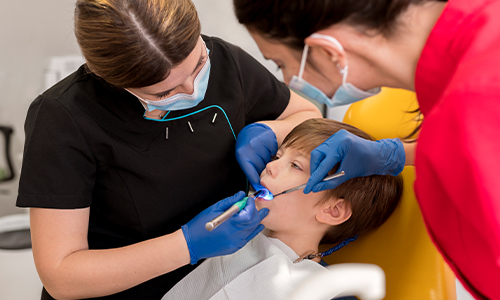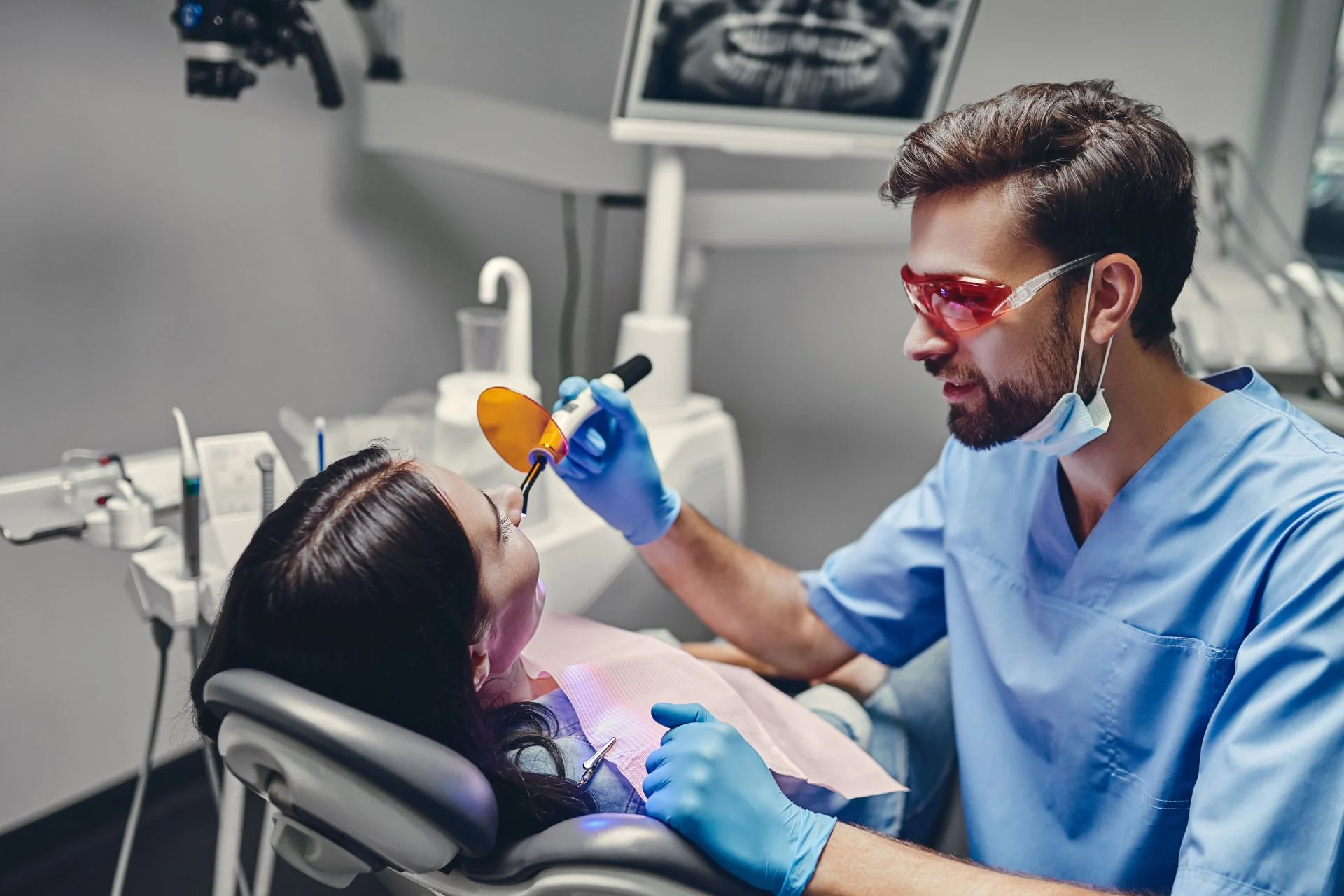Oral Surgery Services
What is an Oral Surgeon?
Oral maxillofacial surgeons are dental specialists who treat conditions, defects, injuries, and esthetic aspects of the mouth, teeth, jaws, and face. Their training includes a four-year graduate degree in dentistry and the completion of a minimum four-year hospital surgical residency program. Oral maxillofacial surgeons care for patients who experience such conditions as problem wisdom teeth, facial pain, and misaligned jaws. They treat accident victims suffering facial injuries, offer reconstructive and dental implant surgery, and care for patients with tumors and cysts of the jaws and functional and esthetic conditions of the maxillofacial areas. The oral surgeon job description includes specialized knowledge in pain control and advanced training in anesthesia. The oral and maxillofacial surgeon is able to provide quality care with maximum patient comfort and safety in the office setting.

Services offered by the Oral Maxillofacial Surgeon are:
Tooth Removal and Anesthesia
Oral and Maxillofacial Surgeons remove impacted, damaged, and non-restorable teeth. They also offer safe and effective anesthesia services, including intravenous (IV) sedation and general anesthesia, in their office.
Dental Implants
Oral Maxillofacial Surgeons work with restorative dentists to plan and place implants for missing teeth. They reconstruct bone and modify gum tissue around implants to ensure a natural appearance.
Facial Trauma
Oral and Maxillofacial Surgeons treat facial injuries, repairing skin lacerations, setting fractured bones, reconnecting nerves and ducts, and caring for oral tissues, jaws, cheek and nasal bones, forehead, and eye sockets.
Pathologic Conditions
Oral Maxillofacial Surgeons treat benign and malignant cysts and tumours in the oral and facial regions, as well as severe infections of the oral cavity, salivary glands, jaws, and neck.
Reconstructive and Cosmetic Surgery
Oral Maxillofacial Surgeons correct jaw, facial bone, and soft tissue issues from trauma or pathology removal, using tissue from other body parts. These skills also apply to cosmetic procedures for improving facial features or aging effects.
Facial Pain & TMJ Disorders
Maxillofacial Surgeons possess skills in the diagnosis and treatment of facial pain disorders including those due to temporomandibular joint (TMJ) problems.
Dento-facial Deformities and Birth Defects
Wisdom Teeth
Wisdom teeth are types of molars found in the very back of your mouth. These teeth usually appear in late teens or early twenties but may become impacted (fail to erupt) due to lack of room in the jaw or angle of entry. The most common type of impacted wisdom tooth is “mesial”, meaning that the tooth is angled forward toward the front of your mouth.
When a wisdom tooth is impacted, it may need to be removed. If it is not removed, you may develop gum tenderness, swelling, or even severe pain. Impacted wisdom teeth that are partially or fully erupted tend to be quite difficult to clean and are susceptible to tooth decay, recurring infections, and even gum disease.
Each patient’s situation is unique. Your dentist will usually take a panoramic X-ray to determine whether your wisdom teeth will need to be removed. If your dentist recommends the removal of your wisdom teeth, it is best to have them removed sooner rather than later.

When are Wisdom Teeth Removed?
Wisdom teeth are typically removed in the late teens or early twenties because there is a greater chance that the teeth’s roots have not fully formed and the bone surrounding the teeth is less dense. These two factors can make extraction easier, as well as making the recovery time much shorter.
How are Wisdom Teeth Removed?
To remove a wisdom tooth, your dentist first needs to numb the area around the tooth with a local anesthetic. Your dentist can use additional medication to safely sedate you during the extraction if you are feeling nervous about the procedure. Since the impacted tooth may still be under the gums and embedded in your jaw bone, your dentist will need to remove a portion of the covering bone to extract the tooth. To minimize the amount of bone that is removed with the tooth, your dentist will often “section” your wisdom tooth so that each piece can be removed through a small opening in the bone.
Once your wisdom teeth have been extracted, the healing process begins. Healing time varies depending on the degree of difficulty related to the extraction. Your dentist let you know what to expect and will provide instructions for a comfortable, efficient healing process.
Are You Considering Oral Surgery?

Why Choose Simply Smiles Miami
Receiving dental implants can significantly enhance both your daily life and overall health. However, it’s essential to choose an implant dentist you can trust before committing to treatment. While some general dentists may have experience with implant placement, they may lack the specialized training that Dr. Trujillo and his team possess for handling complex cases with expertise and efficiency. Our team warmly welcomes patients seeking first or second opinions on dental implants, including those with severe dental anxiety or multiple missing teeth. Explore our location to discover how our implant dentists’ specialized care can positively transform your oral health, overall well-being, and quality of life.
What Our Patients Say:
Don’t take our word for it, take theirs!
REQUEST A CONSULTATION
Make An Appointment

